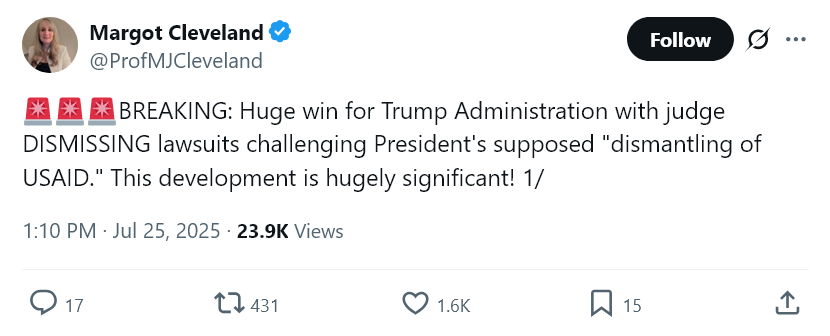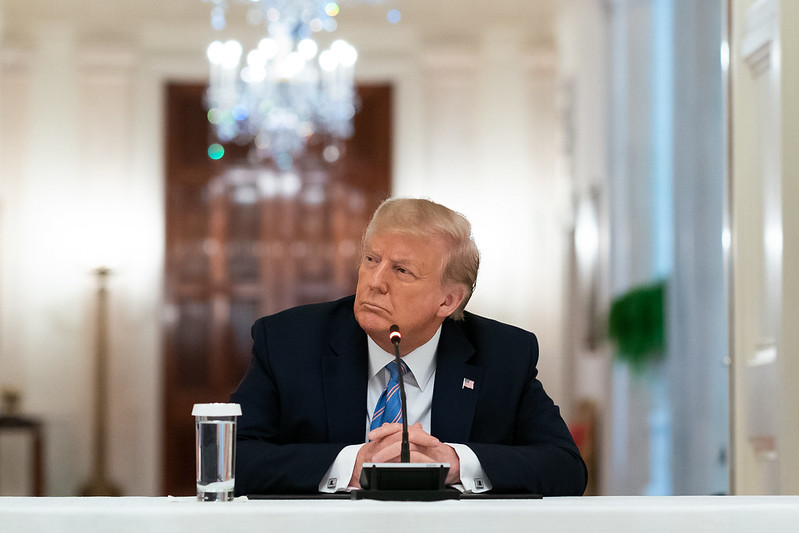President Donald Trump secured another major legal win after a judge dismissed a lawsuit challenging his administration’s alleged “dismantling” of the U.S. Agency for International Development (USAID).
Conservative commentators have hailed the ruling as a significant step that could pave the way for other similar cases to be thrown out. If appealed, a ruling by the circuit court could set a binding precedent for other district courts in Washington, D.C.
The lawsuit was originally filed on February 6, 2025, by the American Foreign Service Association and the American Federation of Government Employees. It aimed to prevent President Trump from placing thousands of USAID employees on administrative leave ahead of their eventual termination.
The two organizations filed the lawsuit jointly, arguing that the administration’s actions violated federal employment protections and endangered the safety of USAID personnel working overseas. When the case was first brought forward, Judge Carl J. Nichols—appointed by President Trump—issued a temporary restraining order blocking the planned removal of more than 2,200 government employees, citing concerns over their safety abroad.
Nichols granted a brief extension of the order on February 13, but by February 21, he lifted the block—clearing the way for the administration to proceed with its staff reduction plans. In his ruling, the judge clarified that the court’s authority was limited to addressing employment-related claims and did not extend to broader constitutional challenges regarding the structural dismantling of the agency.

With all restraining orders lifted, the Trump administration moved forward, placing 2,000 USAID employees on administrative leave while retaining only about 600 deemed essential. Overseas staff were given the option to return home within 30 days, with the government covering the cost.
The case’s dismissal clears the way for the administration to continue its aggressive downsizing of USAID. However, broader litigation involving constitutional questions and funding issues remains ongoing.



